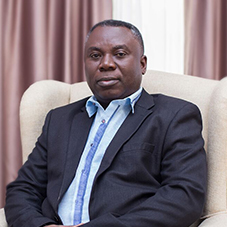In response to Nigeria’s worsening food insecurity crisis, Honda Manufacturing (Nigeria) Limited has launched a community initiative aimed at empowering women in agriculture.
Held over the weekend in Lagos, the event—tagged “Empowering Women in Agriculture”, was designed to support women farmers with agricultural equipment and training that can boost both productivity and income.
Women play a crucial role in Nigeria’s agricultural sector but often face structural challenges including limited access to land, labour, financing, and modern tools. Honda’s initiative aims to close some of these gaps.
A keynote presentation delivered at the event by Professor Chinwe Obuaku, Consultant and Technical Team Lead on Climate Change and Renewable Energy for the Osun State Government, underscored the importance of empowering women as a pathway to food security. In her paper, “Cultivating Prosperity: Entrepreneurial Skills for Women in Agriculture,” she noted that most women in farming do not see themselves as businesspeople—a mindset shift she believes is critical.
“Food insecurity is a growing threat in Nigeria. To truly confront this crisis, we must focus on women,” she said. “Many of these women already work in agriculture, but they need to see themselves as entrepreneurs, not just farmers.”
Professor Obuaku stressed the need for a growth mindset and peer-driven support structures. “They have to believe in themselves first. Agriculture is a high-risk sector, and it takes courage to stay in it and thrive,” she added.
According to Olabade Badejo, Divisional Manager at Honda, the company wanted to drive inclusion and expand its impact beyond its typical male-dominated customer base. “We realised that most of our users are men. This initiative is part of our effort to be more inclusive,” he explained.
One of the beneficiaries, Atinuke Lebile, expressed appreciation. “We’re grateful that women are being recognised. We’ll make sure to use the equipment effectively and share updates on our progress,” she said.
Honda’s Managing Director, Hirohide Ichikawa, reaffirmed the company’s commitment to supporting Nigeria’s agricultural future. “We understand the difficulties farmers face, and we want to contribute meaningfully to Nigerian society,” he said.
As Nigeria continues to battle food insecurity, such private-sector initiatives present a promising path toward sustainability. By equipping women with the tools and knowledge to succeed, the potential to boost national food production and strengthen economic development becomes significantly more achievable.










